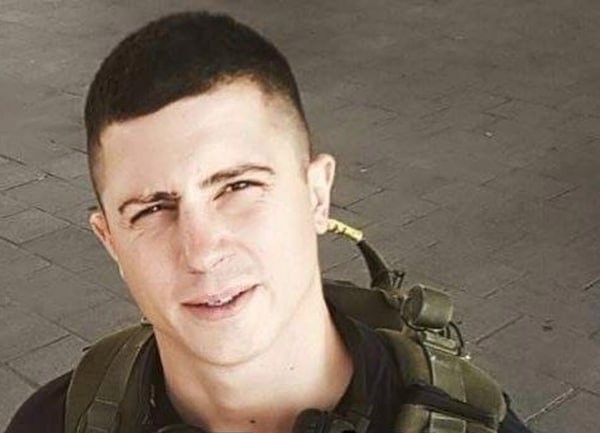
Jean-François Ratelle, who went by the call sign Hrulf, was killed in eastern Ukraine last week when an operation went awry.Supplied
Through two years of war in Ukraine, the man they called Hrulf was something of a mythical figure. The Quebecker had formed a unit of foreign fighters, known as the Norman Brigade, but while they had a large social media presence, it was hard to find them on the battlefield.
But there was no question that Hrulf and his men were on the front line in eastern Ukraine last week when an operation, the details of which remain a closely guarded secret, went awry. The unit took heavy Russian fire, and 38-year-old Hrulf – a Canadian military veteran whose real name was Jean-François Ratelle – was killed in action, making him the 10th Canadian known to have died on the front lines in the war for Ukraine.
“He fought till the end and is an absolute legend. We need to honour him now,” said another French-Canadian, code-named Speedy to protect his identity, fighting on the front lines in eastern Ukraine.
Not everyone was a fan of the Norman Brigade. In an exchange of messages with The Globe and Mail over the months before his death, Hrulf acknowledged that his team had perhaps rushed too quickly to the front line in the early weeks of the Russian invasion. They weren’t prepared for the battles they found themselves in, and several members quit, complaining about Hrulf’s leadership.
Other foreign fighters in Ukraine said they stayed clear of the unit because of its association with the far right. The Norman Brigade was part of the Ukrainian Volunteer Army formed by Dmytro Yarosh, a far-right politician who has been used by the Kremlin to highlight the presence of neo-Nazis in Ukraine – even though he wields no power in the country. Russian propaganda channels also referred to the Norman Brigade as “mercenaries,” though they were largely self-funded through donations.

Hrulf had formed a unit of foreign fighters known as the Norman Brigade.Supplied
There were also those in and outside Ukraine who mocked Hrulf and his unit as being more interested in selling merchandise online – everything from duffel bags to coffee cups emblazoned with the Norman Brigade’s logo, which features both the maple leaf and the fleur-de-lis – than in fighting. But Hrulf, who told his comrades that he had also served in the French Foreign Legion, railed against the idea that his unit was the “urban legend” it was sometimes made out to be.
“He was very, very proud to have served in the French Foreign Legion,” said Dave Smith, another Canadian military veteran serving in Ukraine. “He was very proud to say that Ukraine was his third army and that he enjoyed serving in all three of them.”
A spokesperson for the Department of National Defence confirmed that Jean-François Ratelle had served as an artillery specialist in the Canadian military between 2002 and 2005. He had no overseas deployments.
Hrulf vowed in late 2022 that he would reconstitute the Norman Brigade – after its partial dissolution at the beginning of the war. By then it had thousands of followers on Facebook and X but only perhaps a dozen fighters. He appeared to have made progress recently, with the unit posting a video on March 10 that showcased their readiness for battle.
“We have been busting our ballz with training,” the unit declared on its social media accounts, over a video of troops taking part in urban warfare drills. “It’s now paying off.”
Less than a week later, Hrulf was dead. Russian propaganda channels have claimed that at least two other members of the Norman Brigade were killed in the same clash. Ukrainian military sources said they can’t comment on an ongoing operation.
Friends said Hrulf, a native of Joliette, Que., was initially drawn to Ukraine by love. He arrived in the country and got married before the start of the war and initially formed the Norman Brigade to defend his wife’s home village in the south of Ukraine.
Though he later got divorced and saw his unit fall apart, Hrulf stayed in Ukraine and kept looking for ways to get back to the front line.
“He was desperate to get into it, for whatever reason. The guy walked the walk at the end of the day,” said Donald Bowser, a Canadian security consultant with a long history in Ukraine. Mr. Bowser first got into an online argument with Hrulf but later came to know and respect him personally. “He died in action. He died doing what he wanted to do.”
Anna Filippova, a Ukrainian nurse who met Hrulf as he was shopping for a new mobile phone on the second day of the war, described her friend as a leader who drew people to him. “He was the pillar of his team,” she said.
Ms. Filippova said she had spoken to the surviving members of the Norman Brigade, who said they intended to honour their fallen commander by keeping the unit alive. “The guys confirmed to me that Norman Brigade will keep operating and they will continue what Hrulf started,” she said.